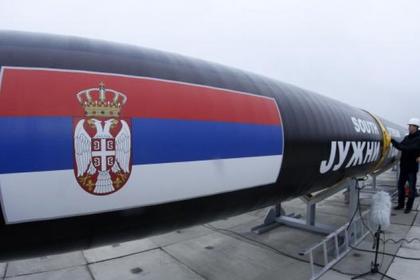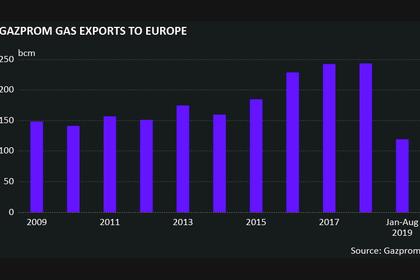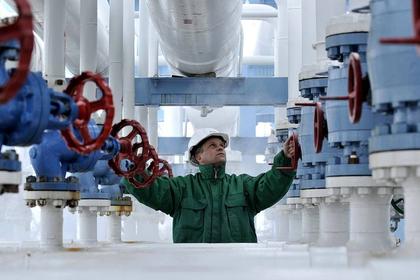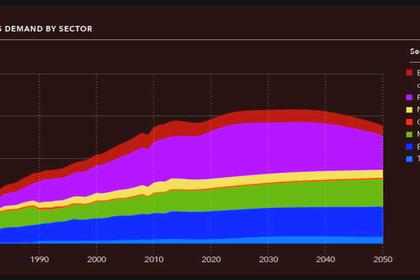
RUSSIA, UKRAINE GAS DISPUTES
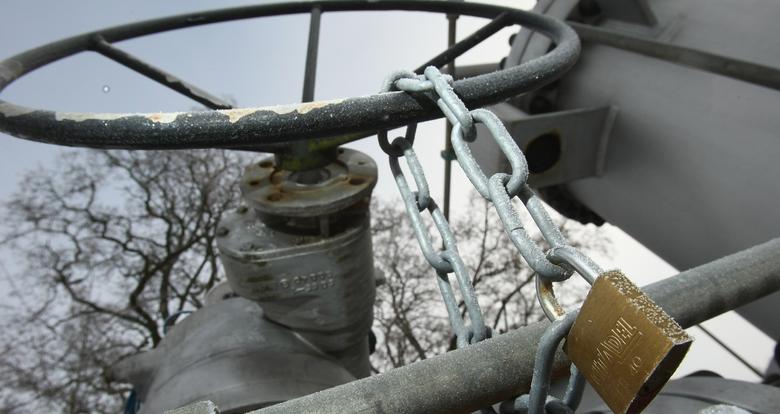
PLATTS - Russia's Gazprom has reaffirmed its stance that it cannot sign a new gas transit agreement with Ukraine's Naftogaz Ukrayiny while the legal disputes between the parties over their 2009 agreement remain unresolved.
The current 10-year agreement between Gazprom and Naftogaz expires at the end of 2019, and the European Commission is brokering talks aimed at putting in place a new contract to take effect from the start of 2020.
However, Gazprom CEO Alexei Miller said Friday that any new transit deal with Naftogaz could only be agreed once the ongoing arbitration dispute between Gazprom and Naftogaz, and other legal matters, are settled.
Given that appeal hearings in the arbitration case are set to continue through May 2021, there seems to be little chance of a new gas transit deal being agreed before the end of December.
"We have made our position known to our Ukrainian and European partners: there is undoubtedly a need to fully resolve all court disputes before signing a new contract," Miller told Russian Prime Minister Dmitry Medvedev, according to a transcript of their conversation posted to Gazprom's website.
"The disputes are quite numerous," Miller said.
ARBITRATION AWARD
The lengthy legal process started in 2014 when both Gazprom and Naftogaz submitted arbitration requests to a court in Stockholm over the terms of the 10-year deal they signed in 2009.
The Stockholm court's final ruling on the dispute came in February last year, with Naftogaz awarded a net $2.56 billion across two cases -- one on supply and one on transit.
But Gazprom subsequently appealed the verdicts and filed a separate request to have the agreement terminated completely -- all with the Svea County Court of Appeal in Sweden.
Miller said he had offered to Naftogaz the chance to start over with a clean slate provided all legal disputes were dropped.
"There are known cases in international practice when disputes between companies were settled out of court, and we are offering a zero option whereby all court proceedings would cease, all lawsuits would be withdrawn, and we would draw a line under this whole affair," Miller said.
Asked by Medvedev whether Naftogaz has given Gazprom any answers to its offer, Miller said: "We are keeping in contact, and they are aware of our questions. The ball is in Ukraine's court."
NAFTOGAZ POSITION
Naftogaz has repeatedly said, however, that it would not drop the arbitration case -- or others including efforts to enforce a $6.7 billion penalty imposed by Ukraine's anti-monopoly committee for Gazprom's alleged abuse of its monopoly gas supply status.
The current standoff is causing concern among European market participants that transit via Ukraine to Europe could be disrupted from January 1, 2020.
The next meeting between the EU, Russia and Ukraine to discuss the terms of future Russian gas transit via Ukraine to Europe will be held on October 28 in Brussels.
Ukraine transited some 87 Bcm of Russian gas to Europe in 2018, but those volumes are set to slump once the planned Nord Stream 2 and TurkStream gas pipelines come online.
Countries in Eastern Europe have been stockpiling additional gas to mitigate the impact of potential disruption from January 1, 2020, if Gazprom and Naftogaz are unable to reach a deal.
Sites have been filled almost to capacity in countries such as Hungary, Poland, Slovakia and the Czech Republic.
NEW ARRANGEMENT
Naftogaz -- which earns up to $3 billion in transit revenues -- wants Gazprom to commit to sending at least 60 Bcm/year of gas via Ukraine for 10 years.
An additional 30 Bcm/year capacity would be available to other companies, or Gazprom, on a short-term basis.
Ukraine's gas network is capable of transiting some 140 Bcm/year of Russian gas to Europe, but volumes have been considerably lower in recent years.
Given past comments, Gazprom and the Russian government are not likely to agree to the 60 Bcm/year demand put forward by Naftogaz.
Instead, Russia wants a short-term extension of the existing agreement with Kiev.
-----
Earlier:
